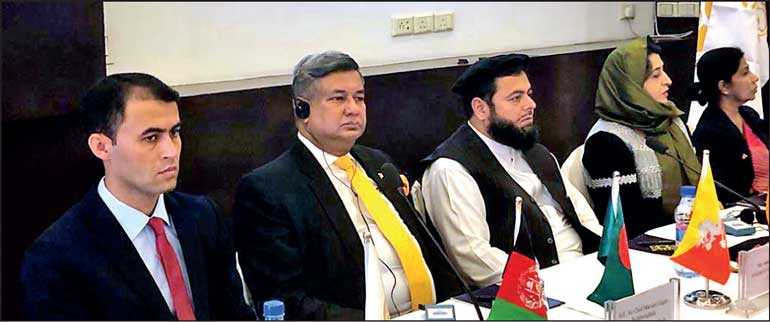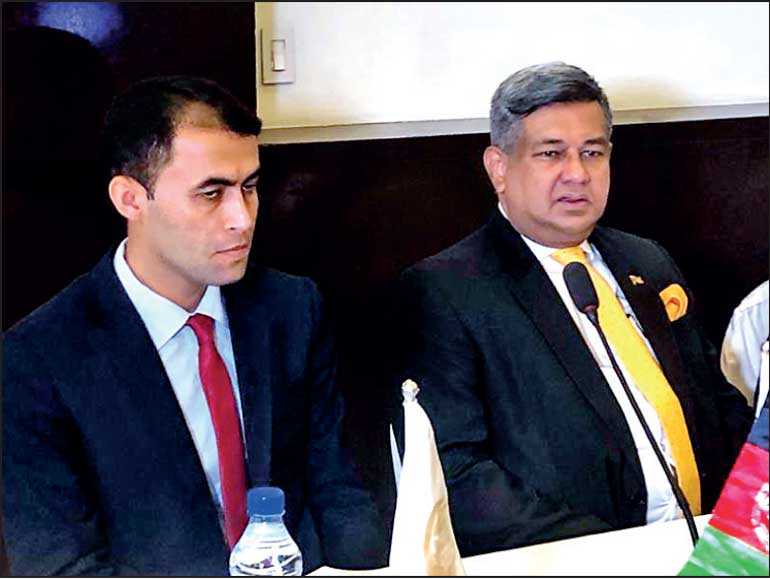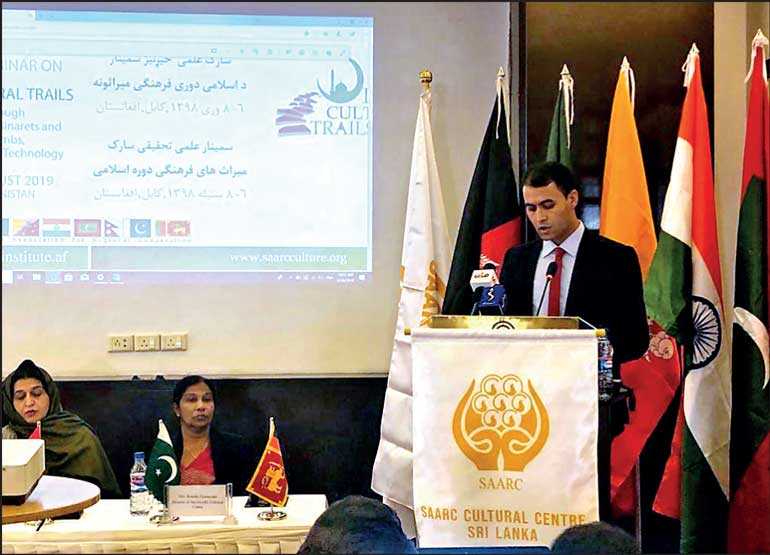Sunday Mar 09, 2025
Sunday Mar 09, 2025
Friday, 30 August 2019 00:00 - - {{hitsCtrl.values.hits}}



The South Asian Association for Regional Co-operation (SAARC) Cultural Centre Sri Lanka organised the 3rd Research Seminar on ‘South Asian Cultural Trails’ approved by the 18th SAARC Summit in 2014, at Kabul Serena Hotel, Afghanistan from 28 – 30 August with the co-partnership of the Archaeological Institute of Afghanistan. The seminar was conducted by SAARC Cultural Centre Director Renuka Ekanayake and its Deputy Director Research Bindu Urugodawatte conducted the seminar.
The aim of this seminar was to contribute towards preservation, conservation and protection of Islamic cultural trails as well as South Asia’s cultural heritage by creating a platform for research for academics, researchers and scholars.
Acting Minister of Information and Culture of Afghanistan Hasian Safi graced the occasion as the Chief Guest along with the Minister of Hajj and Religious Affairs of Afghanistan Abdul Hakim Munib. The seminar was attended by the participants from Afghanistan, Bangladesh, India, Pakistan, Sri Lanka and online video participation of the Maldivian participant.
The Ambassador of Sri Lanka to Afghanistan, Air Chief Marshal Gagan Bulathsingala, also attended the event along with other diplomats. During the seminar, 24 research papers were submitted in four sessions with a plenary session and a field visit to Heart. Islam has inspired some of the most beautiful architectural remains in the region such as Minerate of Jam in Afghanistan, the Sixty Dom Mosque in Bangladesh, Taj Mahal in India, Coral Stone Mosque in Maldives, Jama Masjid Mosque in Gorkha, Nepal, Makli Necropolis of Thatta in Pakistan and the Jami Ul-Alfar Mosque (Red Mosque) of Pettha in Sri Lanka. It’s a remarkable achievement for the SAARC Cultural Centre Sri Lank to co-host this well-attended enriched seminar in Kabul. This endeavour strengthens the bilateral cultural engagement between Sri Lanka and Afghanistan and regional efforts in developing cultural diplomacy.
Discover Kapruka, the leading online shopping platform in Sri Lanka, where you can conveniently send Gifts and Flowers to your loved ones for any event including Valentine ’s Day. Explore a wide range of popular Shopping Categories on Kapruka, including Toys, Groceries, Electronics, Birthday Cakes, Fruits, Chocolates, Flower Bouquets, Clothing, Watches, Lingerie, Gift Sets and Jewellery. Also if you’re interested in selling with Kapruka, Partner Central by Kapruka is the best solution to start with. Moreover, through Kapruka Global Shop, you can also enjoy the convenience of purchasing products from renowned platforms like Amazon and eBay and have them delivered to Sri Lanka.
Discover Kapruka, the leading online shopping platform in Sri Lanka, where you can conveniently send Gifts and Flowers to your loved ones for any event including Valentine ’s Day. Explore a wide range of popular Shopping Categories on Kapruka, including Toys, Groceries, Electronics, Birthday Cakes, Fruits, Chocolates, Flower Bouquets, Clothing, Watches, Lingerie, Gift Sets and Jewellery. Also if you’re interested in selling with Kapruka, Partner Central by Kapruka is the best solution to start with. Moreover, through Kapruka Global Shop, you can also enjoy the convenience of purchasing products from renowned platforms like Amazon and eBay and have them delivered to Sri Lanka.